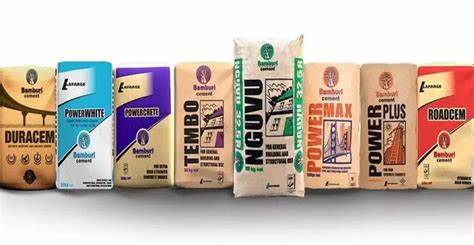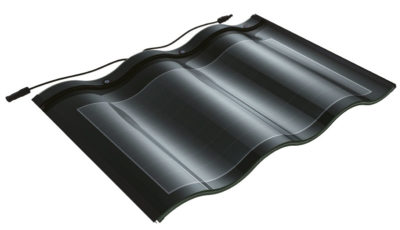Portland cement types available in the Kenyan market

Portland cement is the backbone of the construction industry in Kenya, serving as the primary binding material in concrete and mortar. Understanding the different types of Portland cement available in the Kenyan market is crucial for students, professionals, and stakeholders in the construction sector to make informed decisions on material selection based on project requirements.
What is Portland Cement?
Portland cement is a hydraulic cement produced by grinding clinker, a mixture of limestone and clay, and then adding gypsum. It is the most common type of cement used worldwide due to its versatility and strength characteristics. The term "Portland" originates from the stone quarried on the Isle of Portland, England, which the cement resembles when hardened.
Main Types of Portland Cement in Kenya
Kenya's cement market predominantly features several types of Portland cement tailored for different construction needs. These include:
1. Ordinary Portland Cement (OPC)
-
Description: OPC is the most widely used cement type for general construction purposes, including buildings, roads, and bridges.
-
Grades: Commonly available in grades 22.5, 32.5, 42.5, and 52.5 MPa, indicating compressive strength.
-
Applications: Suitable for all general concrete and mortar works.
-
Availability: Produced by major Kenyan manufacturers such as East African Portland Cement, Bamburi, Mombasa Cement, and National Cement.
2. Portland Pozzolanic Cement (PPC)
-
Description: PPC is a blended cement made by mixing OPC clinker with pozzolanic materials like volcanic ash or fly ash.
-
Benefits: Offers improved resistance to chemical attacks, reduced heat of hydration, and better durability in aggressive environments.
-
Applications: Ideal for marine structures, dams, bridges, and mass concrete works.
-
Composition: Contains 21-35% natural pozzolana.
-
Local Brands: Available from East African Portland Cement (Blue Triangle PPC), Mombasa Cement, and Savannah Cement.
3. Rapid Hardening Cement
-
Description: This cement gains strength faster than OPC, achieving early high strength within 3 days comparable to OPC’s 7-day strength.
-
Use Cases: Prefabricated construction, early formwork removal, and fast-track projects.
-
Composition: Higher lime and C3S content with finer grinding.
-
Availability: Offered by leading cement brands in Kenya.
4. Quick Setting Cement
-
Description: Designed to set faster than OPC, suitable for projects requiring rapid completion.
-
Applications: Concreting in running or still water, emergency repairs.
-
Market Presence: Less common but available in specialized projects.
5. Other Types (Less Common in Kenya)
-
White Cement: Used for architectural finishes and decorative concrete.
-
High Alumina Cement: Used for refractory concretes and high-temperature applications.
-
Sulfate Resisting Cement: Used in environments exposed to sulfates, such as sewage works.
Chemical and Physical Properties of Kenyan Portland Cements
Kenyan blended Portland cements have been studied for their chemical composition, setting time, compressive strength, and consistency to ensure compliance with East African Standards (EAS) and British Standards (BS EN196:2010).
| Cement Type | Pozzolanic Material (%) | Setting Time (minutes) | Compressive Strength (MPa) | Typical Use Cases |
|---|---|---|---|---|
| OPC (CEM I) | 0 | 45-60 | 42.5 - 52.5 | General structural works |
| PPC (CEM II/B-P) | 21-35 | 60-90 | 32.5 - 42.5 | Marine, bridges, mass concrete |
| Pozzolanic Cement (PC) | 11-35 | 60-90 | 32.5 | Durable concrete in aggressive environments |
| Portland Limestone Cement (PLC) | 6-20 | 45-60 | 32.5 - 42.5 | General construction |
Leading Cement Manufacturers and Brands in Kenya
Kenya’s cement industry is served by several major manufacturers offering a range of Portland cement products:
| Manufacturer | Brand Name | Cement Types Available | Strength Grade (MPa) | Price Range (KSh per 50kg bag) |
|---|---|---|---|---|
| East African Portland Cement | Blue Triangle | OPC, PPC | 32.5, 42.5 | 650 - 800 |
| Bamburi Cement | PowerMax, Fundi | OPC (various grades), Masonry Cement | 22.5 - 52.5 | 700 - 850 |
| Mombasa Cement Ltd | Nyumba Cement | OPC, PPC | 32.5, 42.5 | 620 - 750 |
| Savannah Cement Ltd | Savannah Cement | OPC, PPC | 32.5, 42.5 | 620 - 750 |
| National Cement Ltd | Simba Cement | OPC, PPC | 32.5, 42.5 | 600 - 750 |
| ARM Cement (Rhino Cement) | Rhino Cement | OPC, PPC | 32.5, 42.5 | 600 - 780 |
These brands are widely available across Kenya in hardware stores and construction suppliers like Ebuild Hardware.
How to Choose the Right Portland Cement for Your Project?
-
Project Type: Structural vs. non-structural; marine or aggressive chemical environments require PPC or sulfate-resistant cement.
-
Strength Requirements: Higher grades (42.5, 52.5 MPa) for heavy-duty and high-rise buildings.
-
Setting Time: Rapid hardening or quick setting cements for fast-track projects.
-
Durability Needs: PPC for improved durability and resistance to chemical attack.
-
Cost Considerations: PPC tends to be more economical for large-scale projects due to lower clinker content.
Related Questions
-
What is the difference between OPC and PPC?
-
Which cement type is best for marine construction in Kenya?
-
How does rapid hardening cement improve construction speed?
-
Are there eco-friendly Portland cement options available in Kenya?
-
What standards govern cement quality in Kenya?
For further technical details on cement properties and standards, see the East African Portland Cement technical page and the Mombasa Cement classes of cement.
Table: Summary of Portland Cement Types and Uses in Kenya
| Cement Type | Key Characteristics | Common Uses | Strength Grade (MPa) |
|---|---|---|---|
| Ordinary Portland Cement (OPC) | Versatile, general purpose | Buildings, roads, bridges | 22.5 - 52.5 |
| Portland Pozzolanic Cement (PPC) | Contains pozzolanic materials, durable | Marine structures, dams, bridges | 32.5 - 42.5 |
| Rapid Hardening Cement | Fast strength gain | Prefabrication, quick formwork removal | 32.5 - 42.5 |
| Quick Setting Cement | Sets quickly | Underwater concreting, emergency repairs | 32.5 |
How to Choose the Right Portland Cement Type for Your Project in Kenya
Selecting the appropriate Portland cement type depends on several factors including the nature of your construction project, environmental conditions, and budget constraints. Here’s a practical guide tailored for students and professionals in Kenya’s construction industry.
Considerations When Choosing Cement
Project Type: Residential, commercial, infrastructure, marine, or industrial
Exposure Conditions: Sulfate exposure, moisture, temperature variations
Required Strength: Early strength vs. long-term durability
Workability: Ease of mixing, placing, and finishing
Environmental Impact: Preference for low-carbon footprint materials
| Project Type | Recommended Cement Type | Reason |
|---|---|---|
| Residential buildings | PPC or OPC (42.5 grade) | Good durability and strength for typical loads |
| Marine structures | PPC | High sulfate resistance and durability |
| Roads and pavements | OPC or Rapid Hardening Cement | Early strength and durability |
| Industrial structures | OPC (52.5 grade) | High strength requirements |
| Eco-friendly projects | PLC or PPC | Lower CO2 emissions, sustainable choice |
Cement Quality Standards in Kenya
The Kenya Bureau of Standards (KEBS) regulates cement quality to ensure safety and reliability in construction. All Portland cement types sold in the Kenyan market must comply with KS EAS 18:2014 (East African Standard for Cement).
Key Quality Parameters
| Parameter | Requirement (KS EAS 18:2014) | Importance |
|---|---|---|
| Compressive Strength | Minimum 32.5 MPa for general use | Ensures structural integrity |
| Setting Time | Initial > 45 minutes, final < 600 minutes | Workability and curing control |
| Fineness | Minimum 225 m²/kg (Blaine surface area) | Affects hydration rate and strength |
| Soundness | Expansion < 10 mm | Prevents cracking and durability issues |
| Sulfate Content | < 3% | Resistance to chemical attack |
Environmental Impact of Portland Cement in Kenya
Cement production is a significant source of CO2 emissions globally. In Kenya, there is growing awareness and adoption of more sustainable cement types such as Portland Limestone Cement (PLC) and Portland Pozzolanic Cement (PPC) which reduce carbon footprint.
Environmental Benefits of Blended Cements
| Cement Type | CO2 Emission Reduction | Other Environmental Advantages |
|---|---|---|
| PPC | Up to 30% less CO2 | Utilizes natural pozzolans, reduces clinker content |
| PLC | Up to 20% less CO2 | Uses limestone, improves workability |
| OPC | Baseline (highest) | Traditional cement with higher emissions |
Kenya’s cement manufacturers like East African Portland Cement and Mombasa Cement are increasingly investing in greener production technologies to meet local and international environmental standards.
Storage and Handling of Portland Cement in Kenya
Proper storage and handling are crucial to maintain the quality of cement. Kenya’s tropical climate with high humidity can cause cement to absorb moisture and lose strength.
Best Practices
Store cement bags in a dry, covered area off the ground
Use cement within 1-2 months of purchase
Avoid exposure to rain or moisture
Stack bags in a pyramid shape for stability and ventilation
Practical Tips for Using Portland Cement in Kenyan Construction
Always mix cement with clean water and suitable aggregates
Follow recommended water-cement ratios to avoid weak concrete
Use appropriate curing methods to enhance strength and durability
Consult manufacturers’ datasheets for specific cement properties
Tables Summarizing Cement Types, Uses, and Properties
| Cement Type | Strength Grade | Setting Time | Durability | Typical Use in Kenya | Environmental Impact |
|---|---|---|---|---|---|
| OPC | 32.5, 42.5, 52.5 | 45-600 minutes | Good | Structural concrete, beams | High CO2 emissions |
| PPC | 32.5 | Longer than OPC | Very Good | Marine works, sewage, bridges | Lower CO2 emissions |
| PLC | 32.5-42.5 | Similar to OPC | Good | General construction, eco-projects | Lower CO2 emissions |
| Rapid Hardening Cement | 42.5+ | Shorter than OPC | Good | Fast-track construction | High CO2 emissions |
Frequently Asked Questions
How can I verify the quality of cement purchased in Kenya?
Always buy from reputable suppliers and check for KEBS certification marks on bags. Testing in accredited labs is recommended for large projects.
How long can cement be stored without losing quality in Kenya?
Ideally, cement should be used within 1-2 months. Beyond this, moisture absorption can cause lumps and reduced strength.
Can PPC be used for all types of construction in Kenya?
While PPC is versatile and preferred for durability, OPC is sometimes necessary for high early strength requirements such as in fast-track projects or heavy industrial structures.
Are there rapid-hardening Portland cement options available in Kenya?
Yes, rapid-hardening cement is available and used where early strength is critical, such as fast-track construction projects. It gains strength faster than OPC, allowing quicker formwork
What are the main types of Portland cement available in Kenya?
The primary types are Ordinary Portland Cement (OPC), Portland Pozzolanic Cement (PPC), and Portland Limestone Cement (PLC). OPC is used for general construction, PPC for durability and chemical resistance, and PLC for eco-friendly projects
What is the difference between OPC and PPC in the Kenyan market?
OPC consists mainly of clinker and gypsum and provides higher early strength, while PPC contains pozzolanic materials like fly ash or natural pozzolana, offering better long-term durability and resistance to chemical attacks such as sulfates
Which cement type is best suited for heavy structural projects like dams and high-rise buildings in Kenya?
For heavy-duty structures, OPC with higher strength grades (42.5 or 52.5 MPa) is preferred due to its high early strength and load-bearing capacity. PPC can also be used for durability but may have slower strength gain
How do Kenyan cement brands differ in the types of Portland cement they offer?
Major brands like East African Portland Cement, Mombasa Cement, Bamburi Cement, and Simba Cement offer OPC and PPC types in various strength grades. Some brands also produce specialized types like rapid-hardening and limestone blended cements






